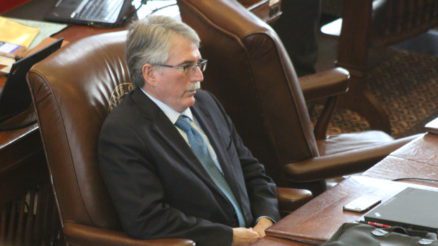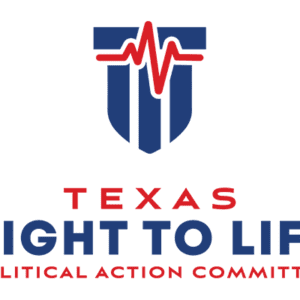Why is Houston Methodist Hospital trying to take Chris’s life?
Last week, we alerted supporters and media to the harrowing ordeal of American hero Chris Dunn at Houston Methodist Hospital, where administrators are fighting to remove him from life-sustaining treatment. Texas Right to Life has been at the helm of efforts to save Chris, and we have seen a tidal wave of support – along with thoughtful and poignant questions – from our friends. Chris was admitted to Methodist Hospital over eight weeks ago, and the hospital is currently withholding diagnosis, prognosis, and treatment for Chris’s ailment because they have arbitrated that Chris’s life is no longer worthy of care – even though Chris and his family disagree with that conclusion.
Chris’s case seems unbelievable to many Texans who cannot imagine that our state boasts a law allowing hospitals to remove patients from life-sustaining treatments against their will. Sadly, this is exactly what the Texas Advance Directives Act (TADA), passed in 1999, permits. Rendering Chris’s case even more shocking is video documentation, filmed in his hospital room last week, of Chris pleading for his life to attorneys who are fighting the hospital’s directive on his behalf.
Under TADA, in Section 166.046, Texas Health and Safety Code, a hospital can take away treatment from a patient (conscious or unconscious) against his will, his advance directive, or his Medical Power of Attorney. The hospital only is required to give the family 10 days’ notice before removing treatment, but the process for patients in these situations to find another facility that will provide care often takes weeks. We have been working to secure care at a different facility, but the law inhibits this process by imposing impossible deadlines and the hospital has abandoned efforts to treat Chris, further delaying the transfer.
The law is barbaric and gives faceless hospital panels the sole authority to take a person’s life instead of empowering patients and families to make their own decisions about their care. Essentially, the law not only allows Chris to be killed against his will, but also hinders our ability to help him live. Pro-Lifers have long warned of the dangerous death panels which threaten to become commonplace under Obamacare. Because of TADA, Texas has served as a tragic example of what this kind of legislation looks like in action for the last sixteen years. No other state has as merciless a statute as the Texas Advance Directives Act. Only Virginia has a similar law, which, unlike in Texas, remains rarely if ever invoked.
Many have asked what Chris’s medical diagnosis is. In short: no one – including his doctors – knows. This is not because Chris is suffering from an inexplicable illness, but simply because his physicians refuse to investigate his symptoms to find a cause. Chris was admitted with a mass on his pancreas which, to date, the hospital has not biopsied.
What we do know about Chris’s medical state is that he is not brain-dead; he is conscious and responds to commands and answers questions by nodding his head and waving his arms. He has persisted in his condition with little change since his admittance at Methodist two months ago. Chris’s condition may be treatable, but the hospital has discriminated against Chris by ruling treatment futile based on an arbitrary “quality of life” judgment, and they have done this without even investing due diligence in diagnosing him.
The hospital has not predicated this decision on Chris’s inability to pay. Instead, the hospital has focused on subjective quality of life judgments as the reason for denying Chris life-sustaining care. Although he did not have insurance when admitted, Chris is eligible for emergency Medicaid, and Chris is receiving other treatment at Methodist. The issue at hand is the hospital’s insistence on removing Chris from a ventilator, which would kill him.
Wielding the power over Chris’s life, the hospital has myriad options available to them. Houston Methodist could reverse the decision to invoke TADA and allow Chris to live on his own terms. They could biopsy the mass on his pancreas and initiate a treatment plan. They could continue treating Chris without a deadline pending his transfer to another facility – whenever that can be achieved. But the hospital has eschewed these alternatives and stubbornly clung to their intention of ending Chris’s life. Last week, the hospital petitioned a court to allow them to usurp the authority of Chris’s mother as his Medical Power of Attorney and instead name an unknown staff member at Houston Methodist as Chris’s custodial guardian – all in an effort to ensure his demise.
The provisions of the Texas Advance Directives Act have ravaged vulnerable hospital patients and their families long enough. Please help Texas Right to Life save Chris by contacting Houston Methodist CEO Marc Boom at 713-441-2671 or mboom@tmhs.org, and sign our petition to #HelpChrisSeeChristmas here. Then, alert your family and friends to Chris’s situation by participating in our December 15 Thunderclap social media campaign, and using the hash tag #HelpChrisSeeChristmas on social media.
Finally, we must work to ensure, through legislative change, that Texas hospitals do not impose unjust death sentences as any more patients. Texas Attorney General Ken Paxton has affirmed that the Texas Advance Directives Act is legally indefensible, and Texas Right to Life has spent the last several Legislative Sessions working to overturn the statute. But rogue Republicans have consistently upended these efforts. That’s why we must elect thoroughly Pro-Life leaders in the 2016 election. We can protect Life from fertilization to natural death; will you join us in the fight?
Tags: legislation, media, tada




